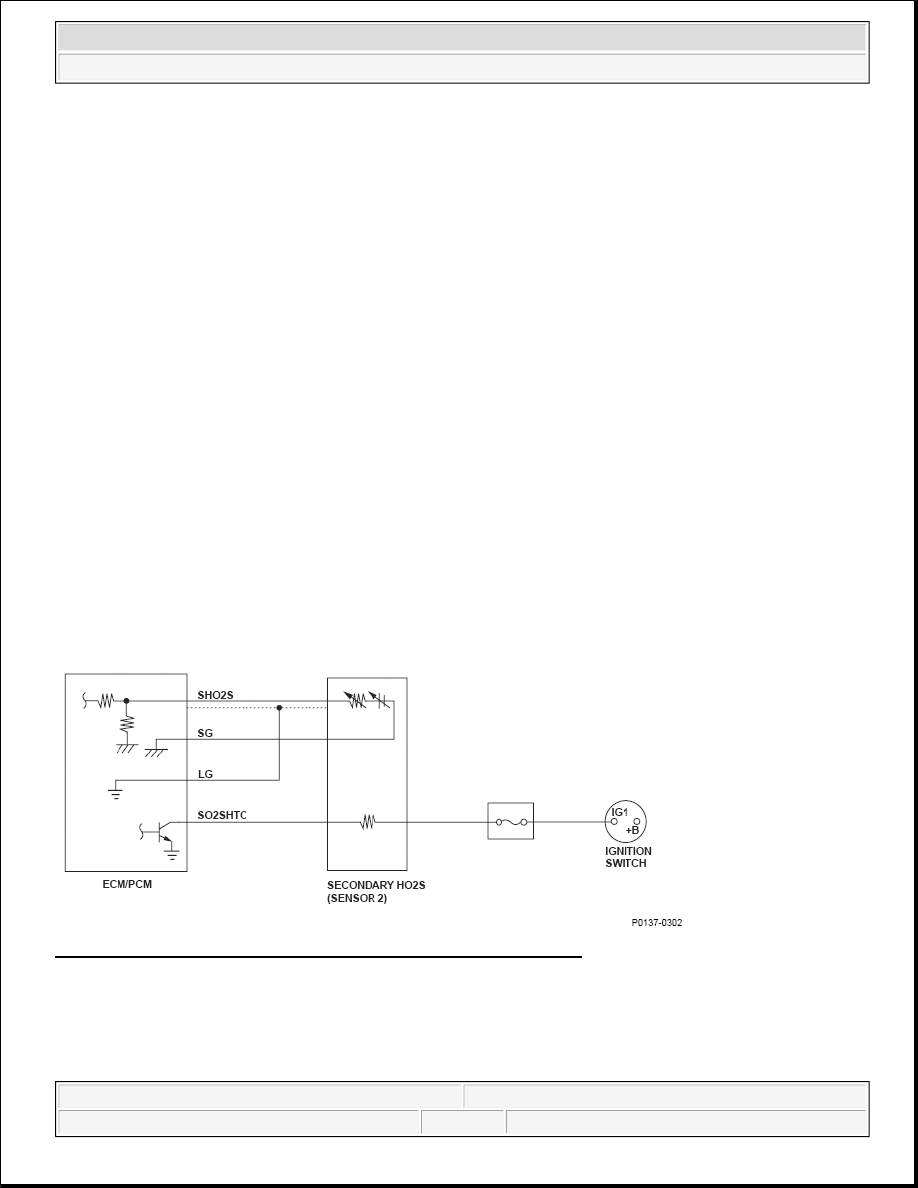Honda Element. Manual - part 13

1. Start the engine. Hold the engine speed at 3,000 rpm without load (in Park or neutral) until the radiator
fan comes on.
2. Then, drive immediately at a steady speed of 35 mph (57 km/h) or more for at least 15.7 seconds.
Drive the vehicle in this manner only if the traffic regulations and ambient conditions allow.
Diagnosis Details
Conditions for illuminating the MIL
When a malfunction is detected during the first drive cycle, a Temporary DTC is stored in the ECM/PCM
memory. If the malfunction recurs during the next (second) drive cycle, the MIL comes on and the DTC and the
freeze frame data are stored.
Conditions for clearing the MIL
The MIL will be cleared if the malfunction does not recur during three consecutive trips in which the diagnostic
runs.
The MIL, the DTC, the Temporary DTC, and the freeze frame data can be cleared by using the scan tool Clear
command or by disconnecting the battery.
DTC P0141 (65): ADVANCED DIAGNOSTICS
DTC P0141: SECONDARY HEATED OXYGEN SENSOR (SECONDARY HO2S (SENSOR 2))
HEATER CIRCUIT MALFUNCTION
Fig. 36: Secondary Heated Oxygen Sensor 2 Heater Circuit Diagram
General Description
A heater for the zirconia element is embedded in the secondary heated oxygen sensor (secondary HO2S), and it
is controlled by the engine control module (ECM)/powertrain control module (PCM). When activated, it heats
the sensor to stabilize and speed up the detection of oxygen content when the exhaust gas temperature is cold.
2007 Honda Element EX
2007 ENGINE PERFORMANCE Advanced Diagnostics - Element